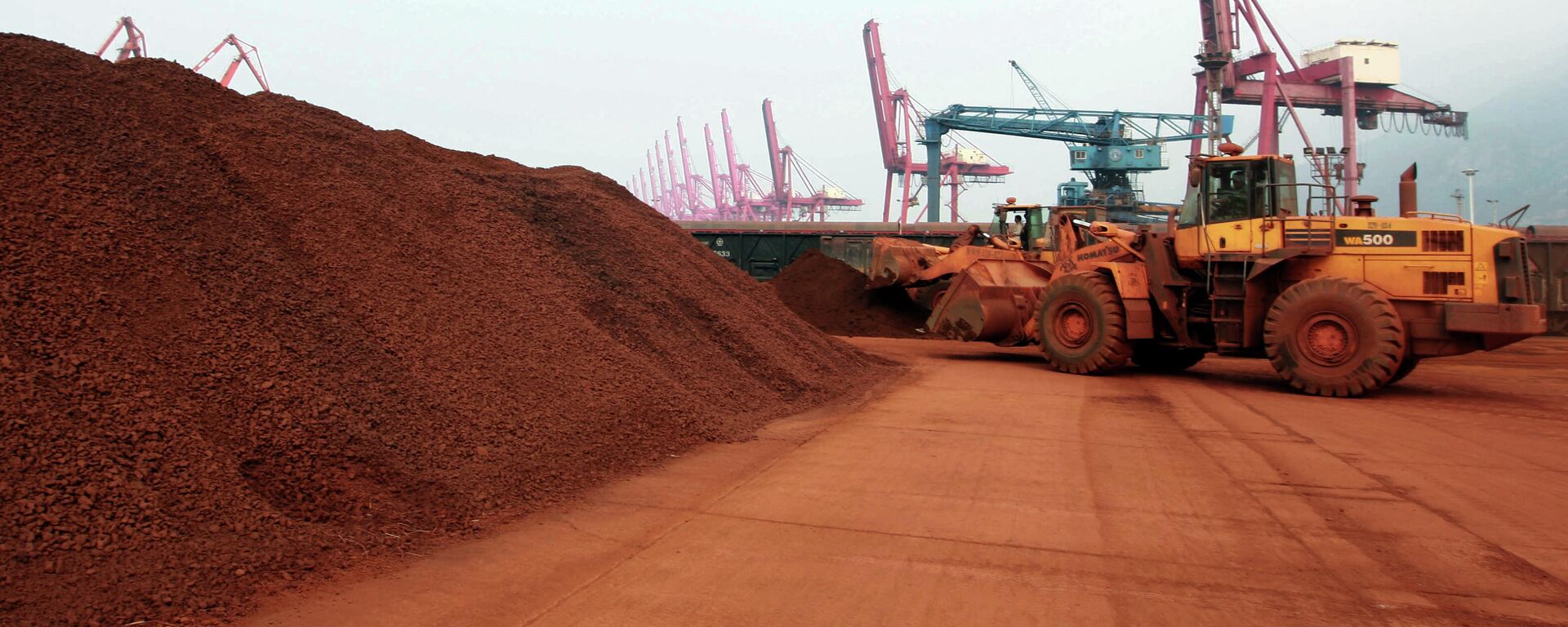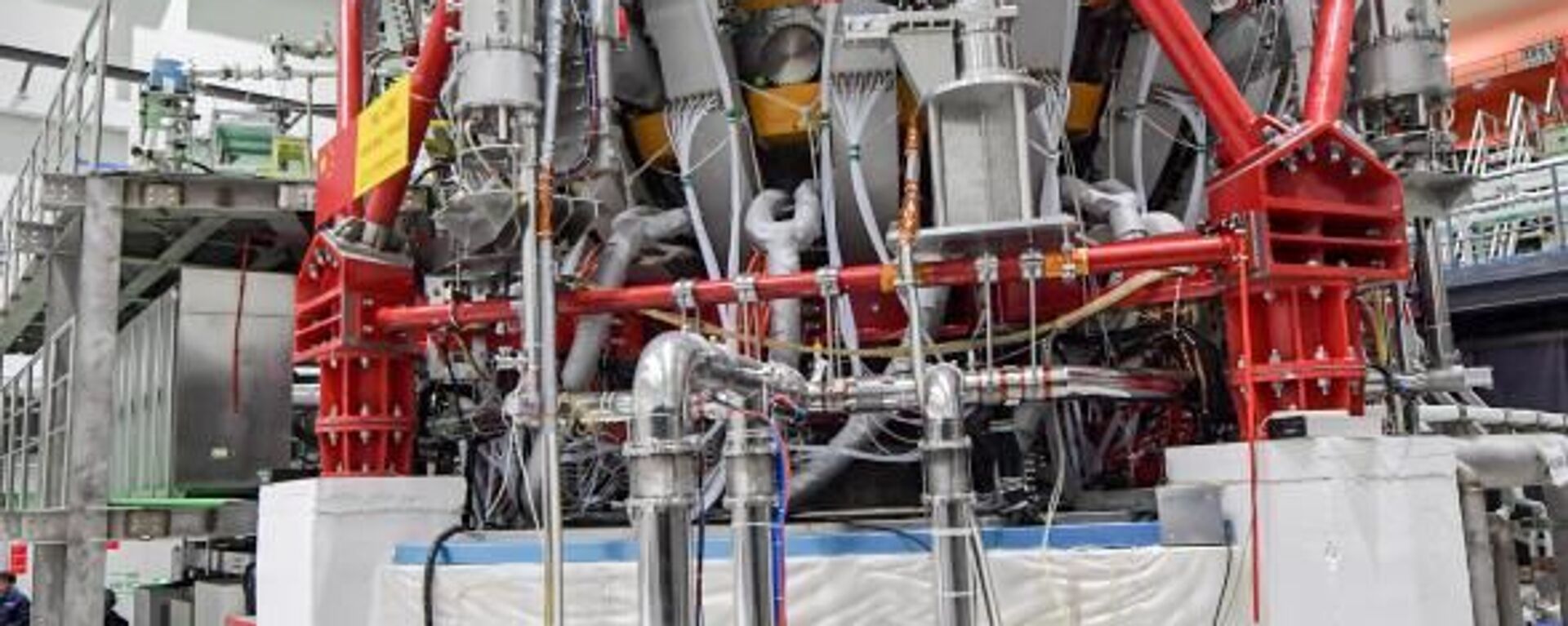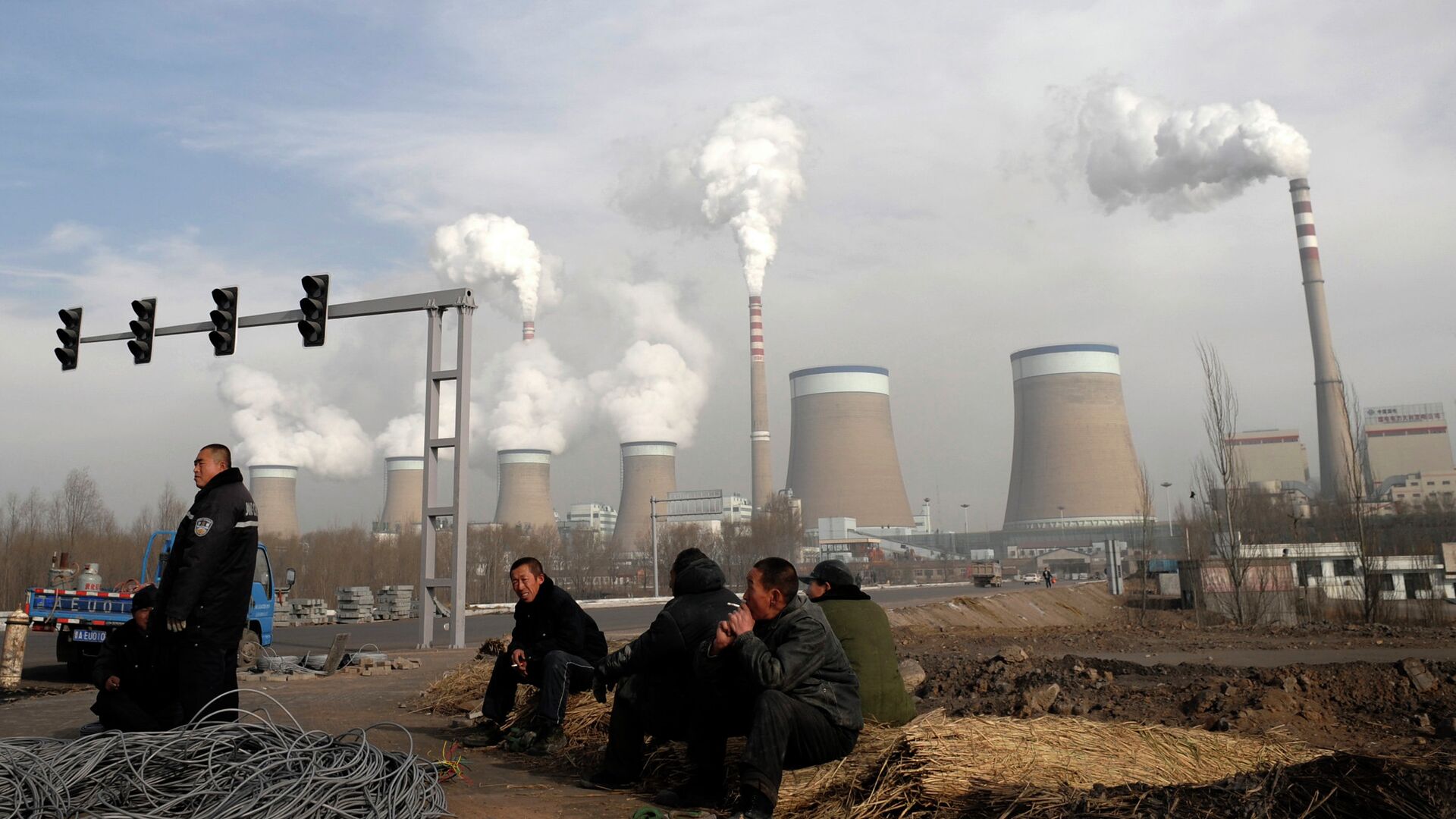https://sputnikglobe.com/20211001/chinese-energy-shortages-may-be-felt-by-economies-around-the-world-1089587576.html
Chinese Energy Shortages May Be Felt by Economies Around the World
Chinese Energy Shortages May Be Felt by Economies Around the World
Sputnik International
Chinese Energy Shortages Might Be Felt by Economies Around the World
2021-10-01T18:56+0000
2021-10-01T18:56+0000
2021-10-01T18:56+0000
world
business
asia
power plants
https://cdn1.img.sputnikglobe.com/img/102587/53/1025875383_0:20:2322:1326_1920x0_80_0_0_7cf849bfc4c7bbed65cb120ab0d58370.jpg
As China is struggling to deal with electricity shortages in its power grids, the rest of the world might feel the economic consequences of this struggle, The Wall Street Journal warns, citing the accounts of businessmen and economists on the initial effects.Following the emergence of the initial signs of shortages and the first blackouts, the Chinese government started to ration electricity use by manufacturers and demand that they meet higher power efficiency goals. Some factories have reportedly had to shorten their working weeks by a day or two, others have had to halt production for entire weeks.These limitations have resulted in many manufacturers reducing their output and being late on their orders. Simple Modern, a company making insulated water bottles and backpacks, told the WSJ that one of its main suppliers of materials based in eastern China had to cut its capacity to nearly one-third of full due to the restrictions on power usage.The CEO of the company predicted that the prices of many products might rise by as much as 15% in just half a year, as Western retailers continue to see sales go up following the coronavirus slowdown, causing a spike in demand amid the dwindling supply of China-manufactured materials. Many businesses rely up to 80% on goods manufactured in Chinese factories. The WSJ predicted another effect of Beijing's efforts to deal with power shortages - it is bound to raise prices on raw materials extracted in China.What Caused the Power Shortages in China?Several factors have contributed to the emergence of the unprecedented power outages and shortages in China. The country's economy started to demand more energy following its revival after the pandemic hit. At the same time, the country's coal industry has slowed down amid incidents at mines, while the government has slashed imports from other countries. In addition, coal power plants have cut generation due to Beijing imposing limits on the selling prices of electricity amid soaring prices of coal itself.The Chinese government's declared goal of reaching a peak in carbon emissions before 2030 and then shifting its economy onto a green track has only added to the problem. Beijing has imposed new rules on power efficiency for Chinese companies and manufacturers.The inability to cover up shortages in energy generation with coal prompted the East Asian nation to boost its purchases of liquefied natural gas. In September, China managed to buy up a significant portion of global LNG shipments, sparking gas shortages in Europe, which among other things contributed to local prices soaring to record highs – both for electricity and natural gas itself.
https://sputnikglobe.com/20211001/eu-eyes-2-billion-in-investments-to-become-independent-from-chinese-raw-materials-1089582054.html
https://sputnikglobe.com/20210930/chinas-artificial-sun-could-generate-electricity-in-a-decade-in-race-to-harness-fusion-technology-1089551387.html
Sputnik International
feedback@sputniknews.com
+74956456601
MIA „Rossiya Segodnya“
2021
Tim Korso
https://cdn1.img.sputnikglobe.com/img/07e6/03/0d/1093831826_0:0:216:216_100x100_80_0_0_e3f43a960af0c6c99f7eb8ccbf5f812c.jpg
Tim Korso
https://cdn1.img.sputnikglobe.com/img/07e6/03/0d/1093831826_0:0:216:216_100x100_80_0_0_e3f43a960af0c6c99f7eb8ccbf5f812c.jpg
News
en_EN
Sputnik International
feedback@sputniknews.com
+74956456601
MIA „Rossiya Segodnya“
Sputnik International
feedback@sputniknews.com
+74956456601
MIA „Rossiya Segodnya“
Tim Korso
https://cdn1.img.sputnikglobe.com/img/07e6/03/0d/1093831826_0:0:216:216_100x100_80_0_0_e3f43a960af0c6c99f7eb8ccbf5f812c.jpg
business, power plants
Chinese Energy Shortages May Be Felt by Economies Around the World
The East Asian country is facing an unprecedented electricity crunch following the adoption of a policy for the gradual decarbonisation of power generation as well as amid soaring gas prices and LNG shortages.
As China is struggling to deal with electricity shortages in its power grids, the rest of the world might feel the economic consequences of this struggle, The Wall Street Journal warns, citing the accounts of businessmen and economists on the initial effects.
Following the emergence of the initial signs of shortages and the first blackouts, the Chinese government started to ration electricity use by manufacturers and demand that they meet higher power efficiency goals. Some factories have reportedly had to shorten their working weeks by a day or two, others have had to halt production for entire weeks.

1 October 2021, 14:44 GMT
These limitations have resulted in many manufacturers reducing their output and being late on their orders. Simple Modern, a company making insulated water bottles and backpacks, told the WSJ that one of its main suppliers of materials based in eastern China had to cut its capacity to nearly one-third of full due to the restrictions on power usage.
The CEO of the company predicted that the prices of many products might rise by as much as 15% in just half a year, as Western retailers continue to see sales go up following the coronavirus slowdown, causing a spike in demand amid the dwindling supply of China-manufactured materials. Many businesses rely up to 80% on goods manufactured in Chinese factories. The WSJ predicted another effect of Beijing's efforts to deal with power shortages - it is bound to raise prices on raw materials
extracted in China.What Caused the Power Shortages in China?
Several factors have contributed to the emergence of the unprecedented power outages and shortages in China. The country's economy started to demand more energy following its revival after the pandemic hit. At the same time, the country's coal industry has slowed down amid incidents at mines, while the government has slashed imports from other countries. In addition, coal power plants have cut generation due to Beijing imposing limits on the selling prices of electricity amid soaring prices of coal itself.

30 September 2021, 14:57 GMT
The Chinese government's declared goal of reaching a peak in carbon emissions before 2030 and then shifting its economy onto a green track has only added to the problem. Beijing has imposed new rules on power efficiency for Chinese companies and manufacturers.
The inability to cover up shortages in energy generation with coal prompted the East Asian nation to boost its purchases of liquefied natural gas. In September, China managed to buy up a significant portion of global LNG shipments, sparking gas shortages in Europe, which among other things contributed to
local prices soaring to record highs – both for electricity and natural gas itself.





